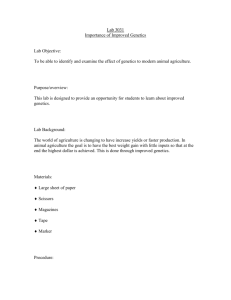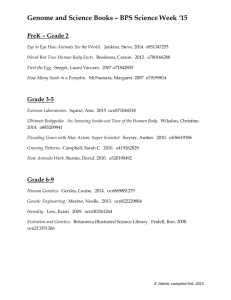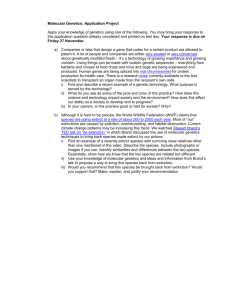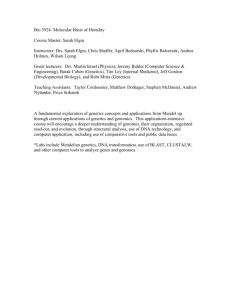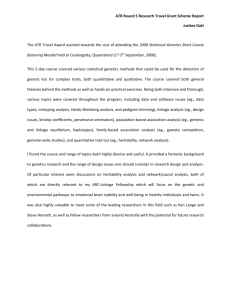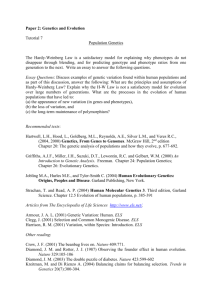Wheeler Population Genetics and Molecular Markers
advertisement
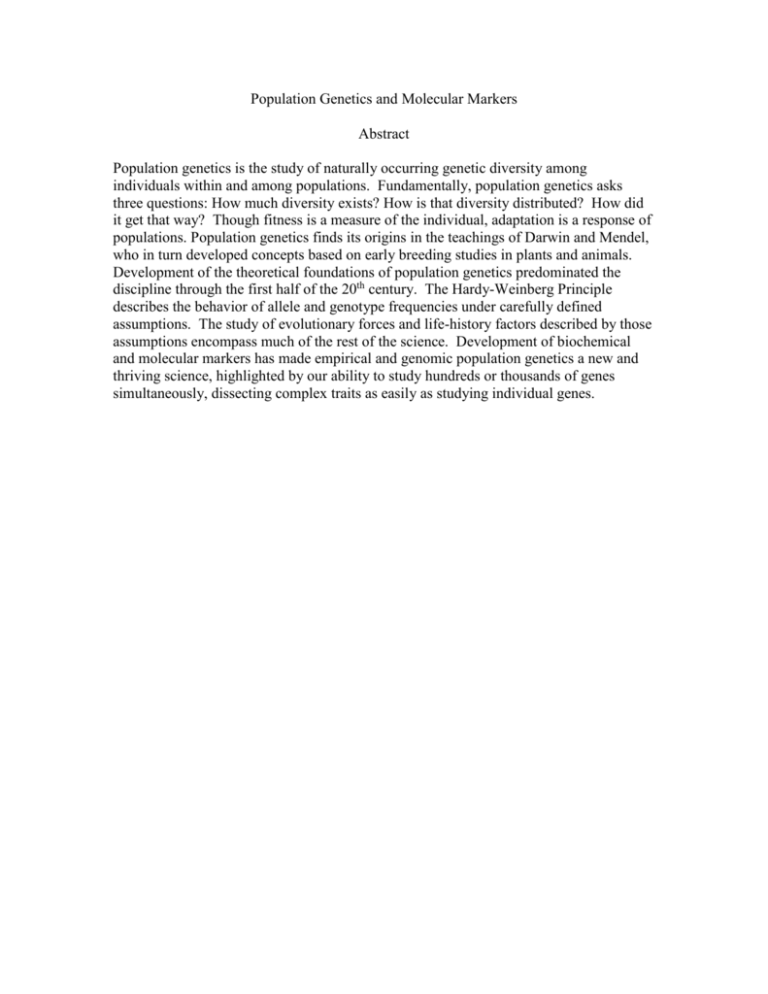
Population Genetics and Molecular Markers Abstract Population genetics is the study of naturally occurring genetic diversity among individuals within and among populations. Fundamentally, population genetics asks three questions: How much diversity exists? How is that diversity distributed? How did it get that way? Though fitness is a measure of the individual, adaptation is a response of populations. Population genetics finds its origins in the teachings of Darwin and Mendel, who in turn developed concepts based on early breeding studies in plants and animals. Development of the theoretical foundations of population genetics predominated the discipline through the first half of the 20th century. The Hardy-Weinberg Principle describes the behavior of allele and genotype frequencies under carefully defined assumptions. The study of evolutionary forces and life-history factors described by those assumptions encompass much of the rest of the science. Development of biochemical and molecular markers has made empirical and genomic population genetics a new and thriving science, highlighted by our ability to study hundreds or thousands of genes simultaneously, dissecting complex traits as easily as studying individual genes.


